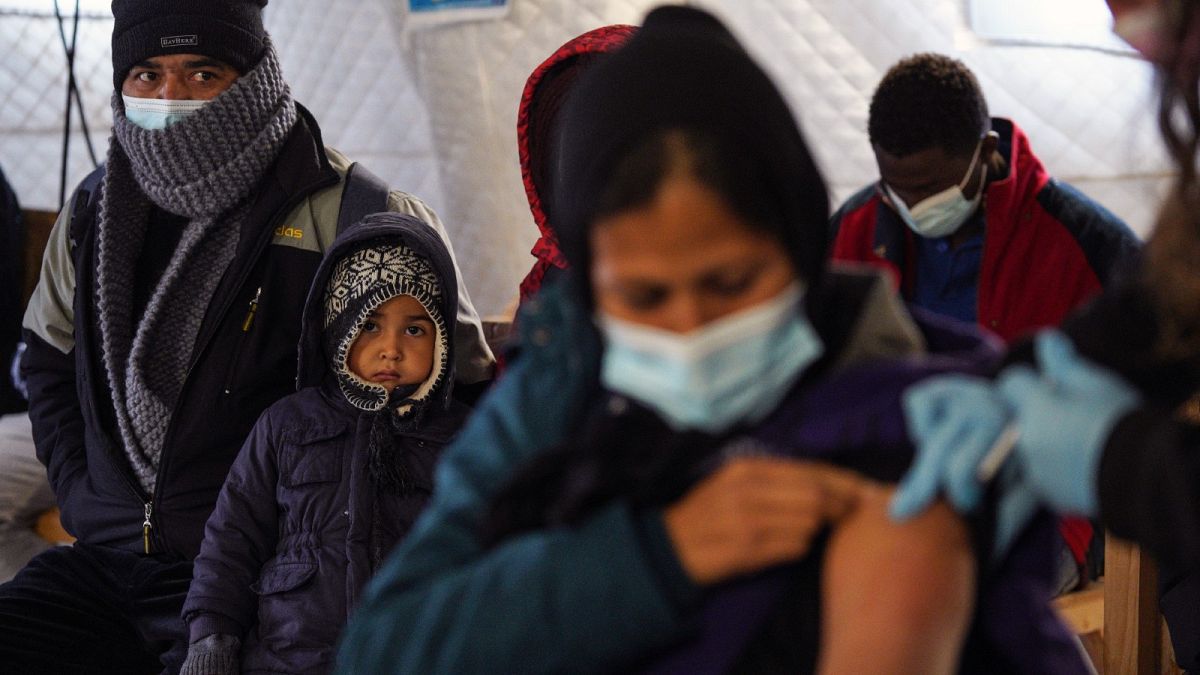"To make better health a reality for refugees and migrants as for everyone else, we need an honest and transparent conversation with everyone represented at the table."
Liverpool's Sadio Mané was just one of the more than 200 footballers competing for their countries during the Africa Cup of Nations (AFCON), which ended earlier this month. While fans cheered in the host nation Cameroon, many of Europe’s Premier League clubs faced a dilemma of missing athletes as their star players left for the tournament on another continent.
Mané ended the lengthy final against Egypt and Mohammed Salah, his Liverpool teammate, with a perfectly placed penalty shot – giving Senegal its first, long-awaited AFCON victory.
The trophy could have ended up elsewhere, as Mané was forced off the field during Senegal's 2-0 win against Cape Verde after colliding with its goalkeeper Vozinha. But as star footballers get injured – no matter their origin - medics rush to the field, doing their utmost to get them back on their feet again.
This is the way it should be, for everyone.
Health and the best care possible should not be a matter of origin, nationality, or superstar status. Every single one of us should be entitled to affordable and quality care. This includes refugees and migrants.
Just as the Premier Leagues rely on their migrant players, all of us rely heavily on the frontline workers who keep our essential services running, underpinning our health systems.
An impressive 13% of essential workers on the frontlines of COVID-19 response in the EU are migrants. In many countries, migrants make up a substantial share of the healthcare workforce: for instance, a third of the doctors in the UK and 20% in Germany are foreign-born, as are 10% of nurses in Italy.
This shows that not only our economies and football teams, but entire health systems are dependent on migrants. Without them, many of our health systems would be on the brink of collapse.
As we aim to build back better from the COVID-19 pandemic, we need to level the playing field of health.
The pandemic has clearly and cruelly shown us that pre-existing inequalities leave some people more exposed than others. Diseases and viruses travel and affect us regardless of borders or passports. We must address financial, administrative, language and other barriers that many refugees and migrants face daily when trying to access healthcare and other essential services. We all know how important care and support is when we fall sick.
To unleash the full public health potential of migration and to improve health for all, we need team spirit, a sense of fair play, political commitment and partnerships across countries and regions.
To make better health a reality for refugees and migrants as for everyone else, we need an honest and transparent conversation with everyone represented at the table.
That’s why we are inviting key decision-makers from WHO’s European, African and Eastern Mediterranean regions as well as representatives of refugees, migrants and civil society to a high-level summit in Istanbul next month tomobilise political commitment and find a common way forward.
Good health and well-being under the umbrella of universal health coverage should be a reality for all of us, on and off the field, no matter who we are or where we come from.
Dr Hans Henri P. Kluge is the World Health Organization's regional director for Europe.
